Hermoso, No?
Hermoso, no?

These three bright nebulae are often featured in telescopic tours of the constellation Sagittarius and the crowded starfields of the central Milky Way. In fact, 18th century cosmic tourist Charles Messier cataloged two of them; M8, the large nebula left of center, and colorful M20 on the right. The third, NGC 6559, is above M8, separated from the larger nebula by a dark dust lane. All three are stellar nurseries about five thousand light-years or so distant. The expansive M8, over a hundred light-years across, is also known as the Lagoon Nebula. M20’s popular moniker is the Trifid. Glowing hydrogen gas creates the dominant red color of the emission nebulae, with contrasting blue hues, most striking in the Trifid, due to dust reflected starlight. This broad skyscape also includes one of Messier’s open star clusters, M21, just above and right of the Trifid.
Object Names: M8, M20, M21, NGV 6559
Image Type: Astronomical
Credit: Martin Pugh
Time And Space
More Posts from Novato-curioso-blog and Others
He de volar en globo!!!

by Manu Hansen ( tumblr )
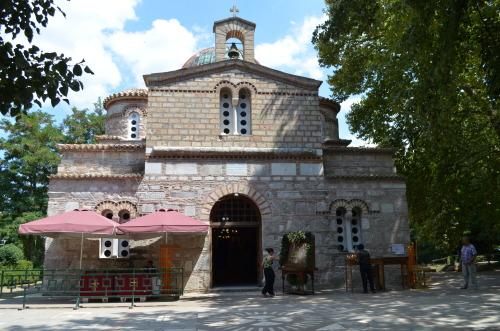
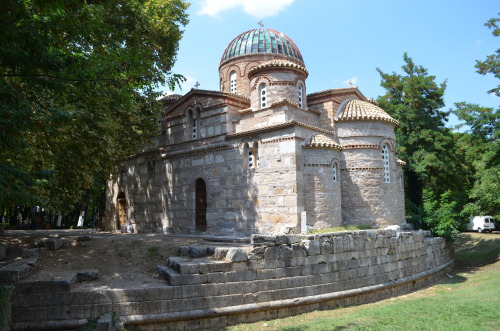
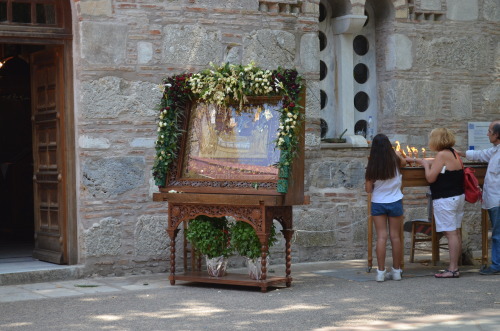
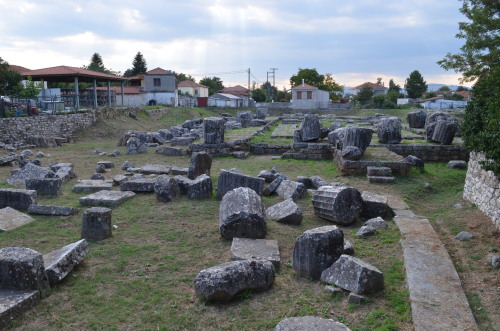
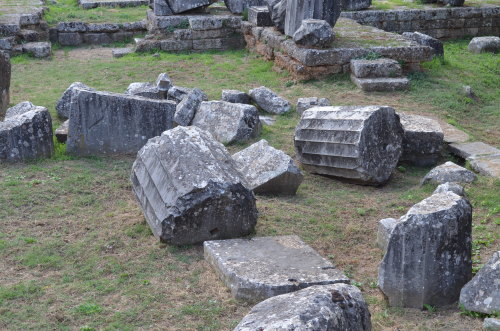
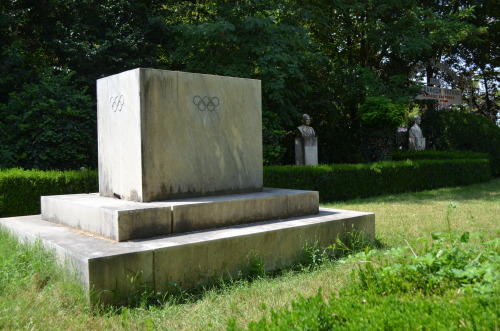
I also visited Tegea- but I didn’t make it to the museum, mostly due to bad planning. I arrived quite early but the Episkopi area was so refreshing that I postponed going back to the village for the museum until it was too late.
The Byzantine Church of Episkopi, devoted to the Dormition of the Virgin, is actually built on the ancient theater of Tegea. Tegea was a large city in a flat plain with no neighboring hills, so the theater was actually built from scratch. When I arrived it was the last day of a yearly fair that has been officially going on since 1893. The fair is held during the panhellenic celebration of the 15th of August, a day that is dedicated to the Virgin Mary. Apparently in the antiquity during the same annual period, another Virgin goddess was celebrated across Greece, the goddess Athena. Athena was also worshipped in Tegea during the antiquity. A massive temple, now at the village near the museum, dedicated to her can be visited.
Tegea was also the home of the 3rd century B.C poetess Anyte.
Now a small, even obscure village in Arcadia, Tegea still amazes with its contemporary history. It was here that the torch flame relay from Olympia to any city that hosts the Olympic Games was first conceived. Apparently in 1934 the International Olympic Committee was brought to the site. Inspired by the ancient monuments and the beauty of nature they decided to attempt the first relay for the Olympic Games of Berlin, in 1936.
Maravilloso!!!

Sculpted by stellar winds and radiation, the star factory known as Messier 17 lies some 5,500 light-years away in the nebula-rich constellation Sagittarius. At that distance, this 1/3 degree wide field of view spans over 30 light-years. The sharp composite, color image, highlights faint details of the region’s gas and dust clouds against a backdrop of central Milky Way stars. Stellar winds and energetic light from hot, massive stars formed from M17 stock of cosmic gas and dust have slowly carved away at the remaining interstellar material producing the cavernous appearance and undulating shapes. M17 is also known as the Omega Nebula or the Swan Nebula.
Object Names: Omega Nebula/ Swan Nebula/ M17
Image Type: Astronomical
Credit: ESO/ MPIA/ OAC
Asembly: R. Colombari
Time And Space



Gold Egyptian mummy casket at Metropolitan Museum of Art, New York City
By Brandon Falls
Incredible detail, click pictures for hi-res
Guau!!!!

What’s that rising over the edge of the Moon? Earth. About 47 years ago, in December of 1968, the Apollo 8 crew flew from the Earth to the Moon and back again. Frank Borman, James Lovell, and William Anders were launched atop a Saturn V rocket on December 21, circled the Moon ten times in their command module, and returned to Earth on December 27. The Apollo 8 mission’s impressive list of firsts includes: the first humans to journey to the Earth’s Moon, the first to fly using the Saturn V rocket, and the first to photograph the Earth from deep space. As the Apollo 8 command module rounded the farside of the Moon, the crew could look toward the lunar horizon and see the Earth appear to rise, due to their spacecraft’s orbital motion. Their famous picture of a distant blue Earth above the Moon’s limb was a marvelous gift to the world.
Object Names: Earth, Moon
Image Type: Astronomical
Credit: Nasa, Apolo 8 Crew
Time And Space
La maravillosa construcción romana. No deja de sorprenderme y maravillarme.
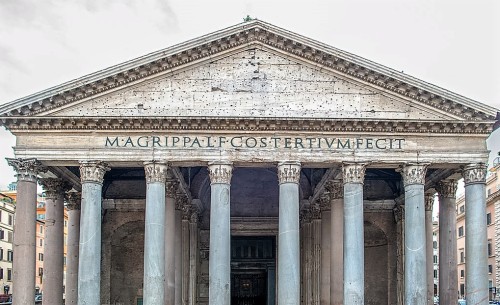
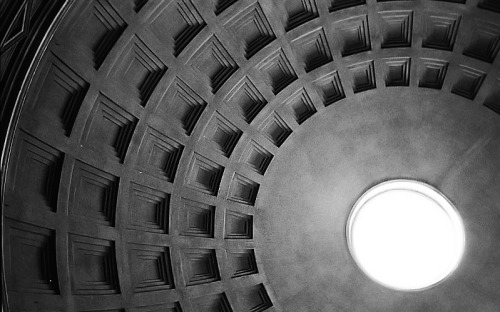
The Pantheon in Rome | 2nd Century AD
Mujer talentosa y valiente. Vale la pena recordarla.

Polish Literature: The Inquietude by Grażyna Chrostowska (1921 - 1942) The day is like the inquietude of Chopin’s music, The birds, scared away from their nests are circling Low above the earth, They are listening, afraid…
Quietness in the nature, warmth is like before a storm. From the West, low, dark clouds flow. Waylaid fear strikes into the heart. Homesickness, homesickness…
I want to walk on soggy roads, Listen to the sound of wind, Hunt the breath of spring time, Feel the deepest feeling, Find quietness in love.
I am walking, unable to find, keep changing and returning. Somewhere far a way, village hamlets are left behind.
Clouds flew to the East, And on the east side, Lonely, leaning, dark trees endure, In the wind, and in the quietness, They are swung by the inquietude.
■ Grażyna Chrostowska was born on 21 October, 1921 in Lublin, Poland. She was a member of the underground KOP (Komenda Obrońców Polski) organization during the Nazi Germany occupation of Poland. She was arrested by Gestapo in Lublin on 8 May, 1941. Together with her sister she was sent to the Ravensbrück Concentration Camp on 23 September, 1941. On 18 April, 1942, Grażyna Chrostowska (aged 21) and her sister were executed by firing squad in the camp. 8 hours before her death, she wrote the poem titled “The Inquietude” (Niepokój).
via #NASA_APP
Quién tuviera una cabaña como esta.

Reflections In Olympic National Park by Alex Bailey
Instagram | Website
-
 moongazinghare1111 liked this · 6 years ago
moongazinghare1111 liked this · 6 years ago -
 jossland1216 liked this · 7 years ago
jossland1216 liked this · 7 years ago -
 enunarealidadmuycercana-blog reblogged this · 8 years ago
enunarealidadmuycercana-blog reblogged this · 8 years ago -
 enunarealidadmuycercana-blog reblogged this · 8 years ago
enunarealidadmuycercana-blog reblogged this · 8 years ago -
 crazy614 liked this · 8 years ago
crazy614 liked this · 8 years ago -
 siewhawyin323282-blog liked this · 8 years ago
siewhawyin323282-blog liked this · 8 years ago -
 swizzlemydizzle-blog liked this · 8 years ago
swizzlemydizzle-blog liked this · 8 years ago -
 harmonicshadow reblogged this · 8 years ago
harmonicshadow reblogged this · 8 years ago -
 harmonicshadow liked this · 8 years ago
harmonicshadow liked this · 8 years ago -
 importantkryptonitemagazine liked this · 8 years ago
importantkryptonitemagazine liked this · 8 years ago -
 starsaremymuse reblogged this · 8 years ago
starsaremymuse reblogged this · 8 years ago -
 mambosun reblogged this · 8 years ago
mambosun reblogged this · 8 years ago -
 sounds-silent reblogged this · 8 years ago
sounds-silent reblogged this · 8 years ago -
 slagzillla reblogged this · 8 years ago
slagzillla reblogged this · 8 years ago -
 slaychelle-100 liked this · 8 years ago
slaychelle-100 liked this · 8 years ago -
 delika-t reblogged this · 8 years ago
delika-t reblogged this · 8 years ago -
 benyahia-abderrahmane liked this · 8 years ago
benyahia-abderrahmane liked this · 8 years ago -
 casandmishasmiles reblogged this · 8 years ago
casandmishasmiles reblogged this · 8 years ago -
 michelleisalive liked this · 8 years ago
michelleisalive liked this · 8 years ago -
 strange-noises-in-odd-places reblogged this · 8 years ago
strange-noises-in-odd-places reblogged this · 8 years ago -
 rageninjablog-blog reblogged this · 8 years ago
rageninjablog-blog reblogged this · 8 years ago -
 astral-dodie reblogged this · 8 years ago
astral-dodie reblogged this · 8 years ago -
 swaggyk8 liked this · 8 years ago
swaggyk8 liked this · 8 years ago -
 c-estnuit liked this · 8 years ago
c-estnuit liked this · 8 years ago -
 thehomo-sapiensagenda liked this · 8 years ago
thehomo-sapiensagenda liked this · 8 years ago -
 danamastro reblogged this · 8 years ago
danamastro reblogged this · 8 years ago -
 losing-is-the-new-winning reblogged this · 8 years ago
losing-is-the-new-winning reblogged this · 8 years ago -
 losing-is-the-new-winning liked this · 8 years ago
losing-is-the-new-winning liked this · 8 years ago -
 stardustandwands reblogged this · 8 years ago
stardustandwands reblogged this · 8 years ago -
 stardustandwands liked this · 8 years ago
stardustandwands liked this · 8 years ago -
 tthomusic liked this · 8 years ago
tthomusic liked this · 8 years ago